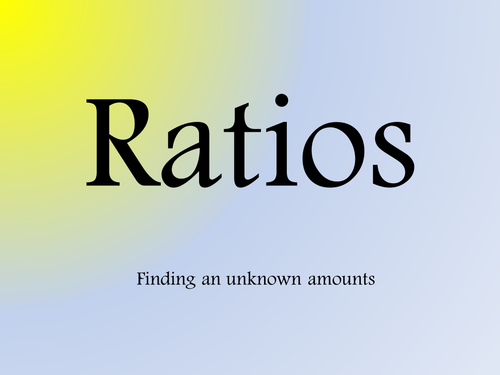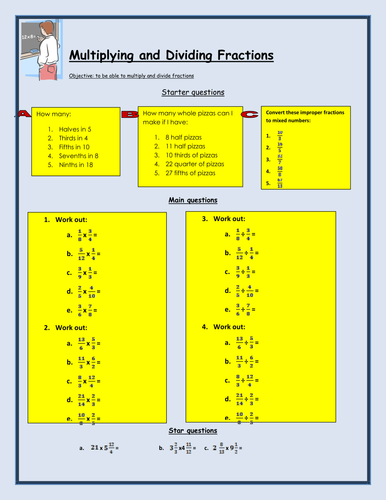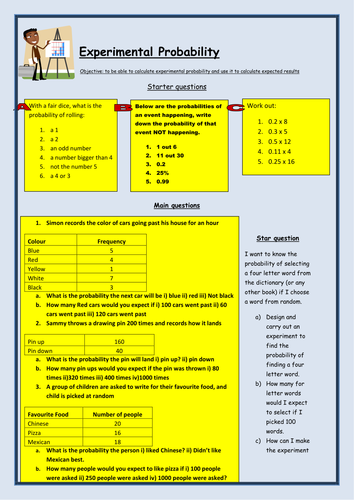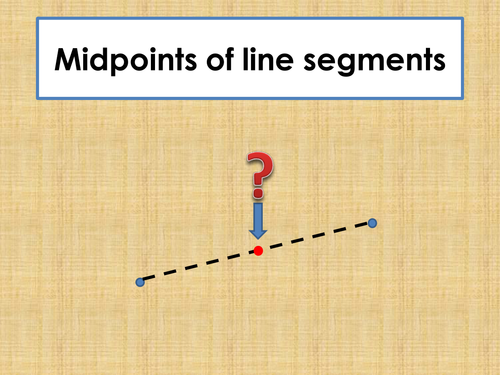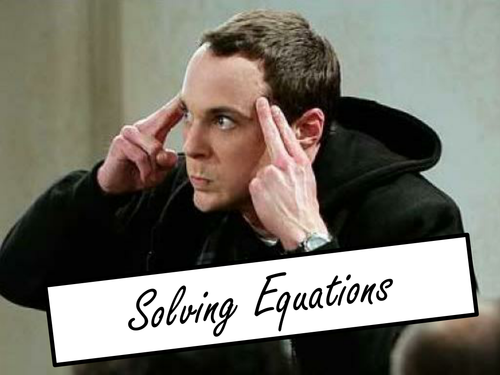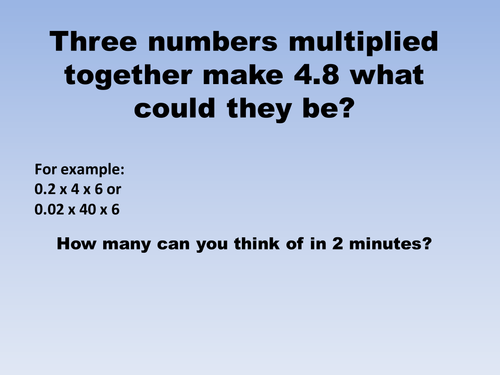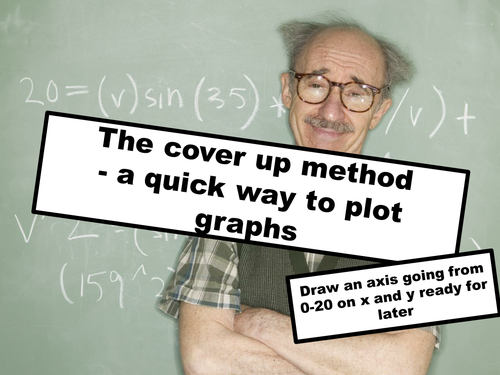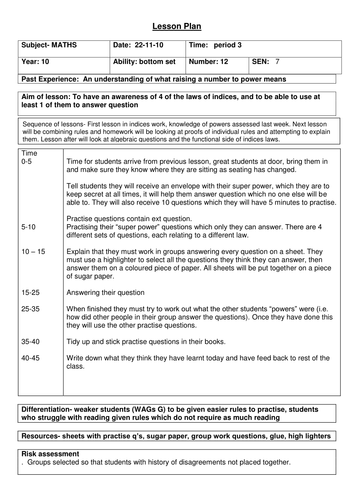
623Uploads
5494k+Views
2904k+Downloads
Math

Collecting like terms handout
A nothing fancy handout, maybe a good starting off point for the topic, starter has negative number questions.

KS3 Area of a circle powerpoint
A powerpoint about area of circles, nothing fancy, with some questions at the end which include quarter, semi circles and pi. Hope you find it useful

Sharing in Ratio PowerPoint - KS3 / GCSE
A PowerPoint Activity on sharing in ratios, in particular finding an unknown amount, e.g how much water do you need if water and squash are mixed in the ratio 3:10 and 20ml of squash is used. There is a starter on sharing in ratios and then some examples followed by some questions. Hope you find it useful.
Spelling mistake is in the on purpose to help see which students are paying attention (blush)- not really, sorted it now

Multiplying and Dividing Fractions worksheet
Worksheet with starter main and extention. Starter has questions such as, how many halves in 3 wholes and some mixed number / improper fraction conversion.

KS3 Adding and Subtracting Fractions powerpoint
A simple KS3 powerpoint showing adding and subtracting fractions with the same and different denominators. Tfere's a warm up on LCM and equivalent fractions and some queestions with answers at the end.

Bearings handout
Simple bearings handout, with a starter main and extention. Starter has drawing angles and covers rules of bearings, extention asks students to find a link from bearing from A to B and bearing from B to A.

Adding and Subtracting Decimals handout
Nothing fancy, this starter has students practicing addition and subtraction using any method they know. The extention asks students to write out instructions and some questions for someone who wasn't in the lesson.Hope you find it useful.

Experimental Probability Worksheet
A worksheet for experimental probability with a starter main and extention, hope you find it useful

Midpoints of Line Segments PowerPoint
KS3 / GCSE. A simple powerpoint showing how to find the mid point of line segments, with a little starter about directed numbers. There are somne questions with answers at the end.

Sharing in ratio lesson
A lesson on sharing in ratios; with a starter test on simplfying ratios; a few examples then some question followed by extention questions.

Solving Equations Powerpoint
A simple solving equations powerpoint made for a group who needed a little reinforcement. a fun little algebra starter, make sure you change teachers names to suit your school. Some examples and then some questions.\n\nHope you find it useful

Perimeter of Sector worksheet
A simple worksheet for finding the perimeter of a sector, with a starter and extention

Ratio Multiple Choice Starter - KS3
A KS3 PowerPoint activity with 10 multiple choice questions on sharing in ratios.

Solve linear equations (w/brackets) Maziarz Mapped
A handout for solving more complicated linear equations. Starter has questions on collecting like terms, multiplying out brackets and solving simple linear equations , to remind students of the skills they will need. Extension asks students to write their

KS3 Maths Multiplying and Dividing by Decimals
Maths Starter. Powerpoint slide. A starter asking students to try and write down as many sets of three numbers which multiply to make 4.8 as they can in 2 minutes. Then followed by some questions on multiplying and dividing decimals.

Collecting like terms multiple choice starter
10 multiple choice collecting like terms questions, correct answer goes green when clicked! I've tried to get all the common wrong answers that I could think of into it. Hope you find it useful.

KS3 - Cover up method: Plotting graphs
A powerpoint showing the cover up method for plotting graphs whose equation are in the form ax + by=c. With some questions at the end.

Maths KS4 Indices laws -lesson plan, worksheets
These are for an introductory lesson i did with a very low ability GCSE group.
Each child was secretly given a super power, telling them about one of the laws of indices, this was built up by telling them that only they would be able to solve these questions. they then practised before answering q's as a group, other members had to work out how they were answering questions.



